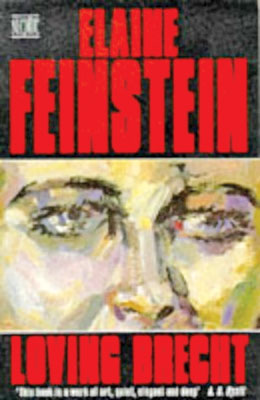The story or the enthralling experience narrated by Jewish Cabaret Singer in Weimar Berlin, named as Freida Bloom, began a love affair with young Bertolt Brecht, only to find that she is one of the several women whose skills and emotions fuel Brecht’s creative energy.
Quite recently, I was invited to one of the most interesting narratives that deal on the life and works of Brecht as seen by one of his close female associates. The book in the form of a biographical novel centres round the trails and tribulations in the life of Brecht. The work too deals with the frank revelation of some of his lovelorn episodes and romances during the course of ideology based on sources culled from history, folklore and epics in various countries inclusive of India, China Germany and Italy. He left Nazi Germany in 1933, returning to East Berlin in 1948 to found the Berliner Ensemble. The plays which he wrote and at times directed include The Three Penny Opera, The life of Galileo, Mother Courage and The Caucasian Chalk Circle.
 Quite a lot has been written about the dramatist and poet Bertolt Brecht (1898 – 1956). Among the treaties that had sprung up in English, the most remarkable work is by Martin Esslin titled as ‘The Choice of Evils’ with a short biography of Brecht. The intention is to exemplify his short and long works that had come to be translated from German into English. Brecht’s contribution to the theatre seems to stem up from his introduction of socio-political. The narrative which runs to five minor episodes, containing about five chapters in each is titled as Loving Brecht (1993) written by an English authoress named Alaine Feisntein about whom a little is known.
Quite a lot has been written about the dramatist and poet Bertolt Brecht (1898 – 1956). Among the treaties that had sprung up in English, the most remarkable work is by Martin Esslin titled as ‘The Choice of Evils’ with a short biography of Brecht. The intention is to exemplify his short and long works that had come to be translated from German into English. Brecht’s contribution to the theatre seems to stem up from his introduction of socio-political. The narrative which runs to five minor episodes, containing about five chapters in each is titled as Loving Brecht (1993) written by an English authoress named Alaine Feisntein about whom a little is known.
She happens to be a researcher into the life and works of Bertolt Brecht. In a short note on the author Elaine Feinstein it is stated that he has long been admired as the author of novels which crystalise the European drama of the century.
She is a poet and the translator of the selected poems of the Russian poetess, Marina Tsvetayeva. She has gained experience in writing radio plays and tele plays. All these experiences have culminated in her becoming a fellow of the Royal Society of Literature in 1980. She was awarded the Cholmondeley Prize for poetry in 1990, and made an honourary Doctor Letters at the University of Leicester.
The intention of the writer Feinstein is to make the reader feel that Brecht had been an admirable image in the life of his admirers to the point that he is shown as a super sensitive creator who does not feel that passage of time. He is shown as a person who not only neglected his personal health but indulges in a commitment unforeseen. His addiction to Brandy and smoking cigars is as indivisible from his dedication to the creative task. The narrator Friech Bloom is made to spend most of her time with him both in the capacity of a secretary and a performer cum associate who helps in his writing. But it looks rather a strange human relationship as Brecht shown as married. At the same time, he is aloof from that marital life. He is shown as individual who faces challenges boldly.
Through the eyes of Frieda, the author of Loving Brecht depicts dramatic episodes on how Brecht faces some of the so far unwritten interrogations, trials and entry interviews than enable him to escape from the war torn countries in order to settle down with a peace of mind which he so desired. From Berlin he comes over to Russia and from Russia to New York, and from there to London. The narrative pinpoints the moment of his last days nearing death.
But he wants to rise up and work. Frieda looks on by his side thinking of her days with Brecht, which culminates as follows in the words as altered by Brecht.
“I don’t regret the shape of my own life. My work has brought me joy. I never feel lonely now, and rarely sad. In some ways, I have been very fortunate.”
Loving Brecht happens to be an extraordinary exploration into the works of Brecht as seen by a loving woman. Quite a number of dramatic situations is created in the narrative showing the incomparable nature of Brecht as a human being, who deals meticulously both as a play directed and a writer. One such situation shows how he goes about when he is frustrated and self-effaced when a slight failure arises in theatre craft. Brecht is depicted as a person who becomes silent when such a situation arises. His death is also depicted not as a permanent disappearance from the point of view of the narrator Bloom but as a sad farewell.
“I look forward for his arrival at a given moment,” she says, making the reader feel as if he will one day make a comeback in a new guise.



Add new comment